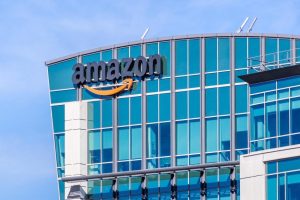The third digital commerce revolution is here. It’s a good time to be a growing platform with digital and retail media capabilities.
“Retail media is hard, but worth it. Its the third revolution in digital advertising and in almost every way, its more interesting than the previous two. It’s advertising as utility. It’s advertising that helps consumers find what they are looking for. But, its darn hard.” That was Jared Belsky, CEO of digital agency Acadia, reacting on LinkedIn to some big news in the digital commerce space.
At the end of October, Omnicom, the global media, marketing and communications holding company, announced that it was adding Flywheel to its portfolio at the notable cost of $ 835 million. Flywheel offers a platform that serves advertising across more than 400 major digital marketplaces. With reach in the Americas, Europe, APAC, and China, it provides access to a very large, international audience.
Are the holding companies playing catch-up?
In Belsky’s view, the acquisition is a sign that the big holding companies — the Omnicoms, Dentsus, WPPs, etc — have finally recognized the critical importance of digital commerce and retail media advertising and are playing catch-up. “I am not sure that part is news,” he wrote. “I think the news is that it’s taken this long for so many to realize how important retail media and marketplaces truly are.
“Omnicom hasn’t done a deal at that kind of scale in a long time,” said Tim Ringel, CEO of Meet The People, a digital agency group. “The last time holding companies did acquisitions at that scale — close to a billion — was probably when they tried to do first party data plays.” Ringel was thinking of IPG’s acquisition of Acxiom and Publicis Groupe’s acquisition of Epsilon.
Holding companies, in Ringel’s view, need to demonstrate to clients that they are ready to support marketing through digital channels. “Flywheel is the only player with a real global footprint that can handle multi-platform, and I think that made them really attractive,” he said.
Ringel takes issue with the view that the news signifies a belated catch-up strategy by the holding companies. “During the pandemic,” he said, “retail media acquisitions were very expensive and most of the companies were not at scale, so they were not really attractive targets. I’m not surprised the buying frenzy hasn’t started yet. Number one, not enough supply in terms of targets. Number two, the economic environment was not really favorable for holding companies to make big deals.”
The acquisition signals the beginning of a timely wave of activity, Ringel would say. “The other players in the market that are still subcale, or just getting to scale, they’re going to have quite a fun time, because now the other holding companies have to move.”
An undeniable trend
Belsky agreed that there is a talent and agency scarcity issue. “It is particularly acute at the top level,” he told us. “For big holding companies to move the needle on Revenue, EBITDA or even head-count they need to make sizable acquisitions. The number of retail pure play agencies out there at scale can be counted on two hands (maybe even one hand). That scarcity even continues as you get into the mid-market.”
Nevertheless, he sees the trend of money moving into the retail media market as unstoppable. The first two revolutions were search and social and this is the beginning of the third, he said. “Its the first time advertising is so close to the point of purchase while being so trackable and targetable. For huge industries ranging from food, to CPG, to retail, to consumer electronics we will see 33% plus of their budgets move this way over time and those are enormous categories.”
Retail media, said Belsky, is the fastest growing segment of all digital ad spending. “This is not just a trend,” he continued, “its a total evolution. The reason for this is this goes beyond just retail media (the advertising piece of it). Agencies and marketers have to get better at the organic part of this which includes creative, SEO, inventory management, refund management, pricing and so many things that the ‘advertising complex’ is less familiar with.”
In the same week as the Flywheel acquisition, performance marketing platform Skai released data that seemed to support Belsky’s enthusiasm:
- QoQ spend on retail media grew 10%, trailing social but beating search.
- YoY retail media “extended its run of robust growth rates at +34%.”
- YoY retail media impressions, clicks and COC were up 9%, 12% and 21% respectively.
“It’s an exciting time,” Belsky said.
The post Omnicom’s Flywheel acquisition signals the start of a revolution appeared first on MarTech.
MarTech(8)
Report Post



